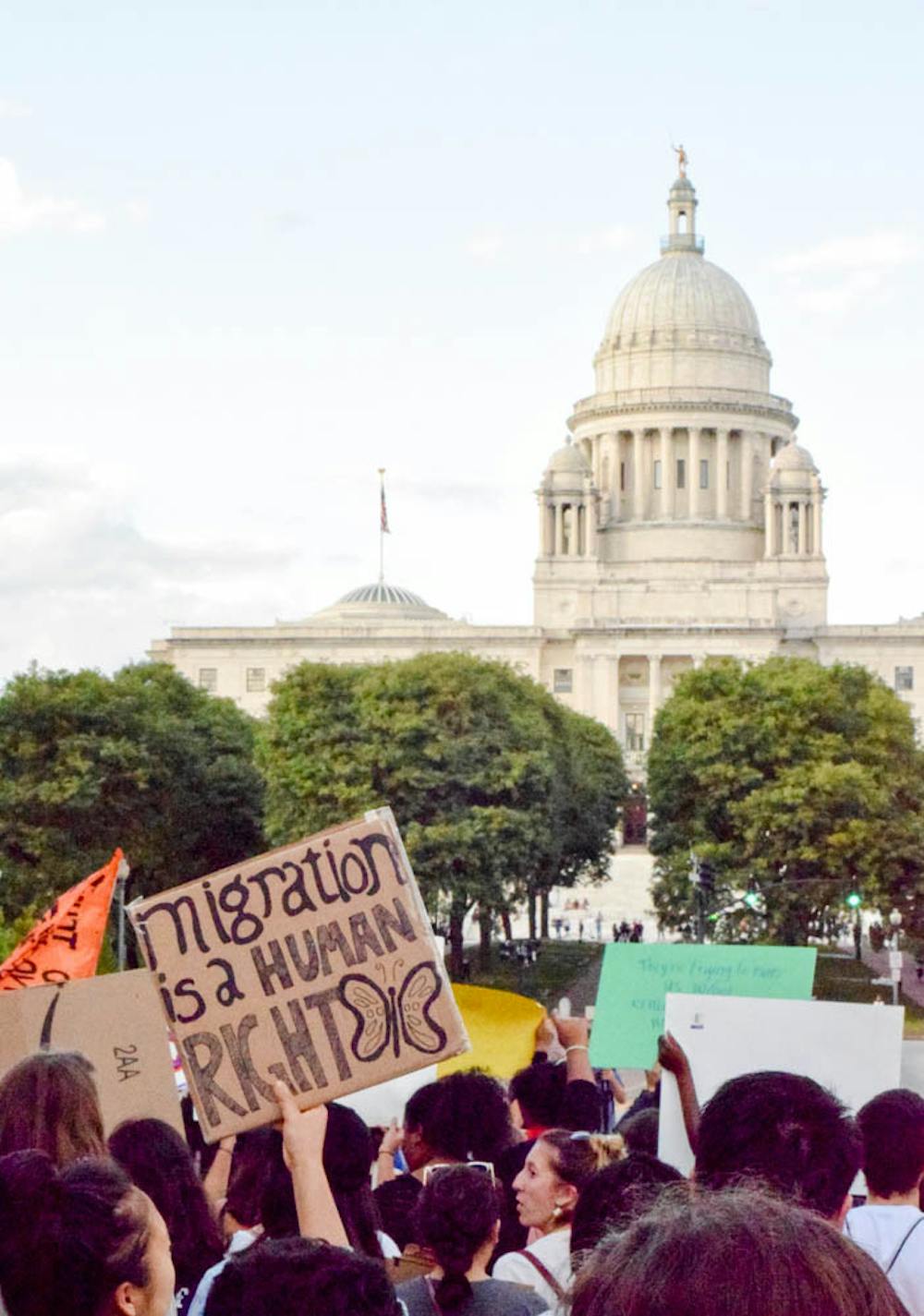Following President Trump’s announcement that he would end the Deferred Action for Childhood Arrivals program next March, the University announced its efforts to aid undocumented students on campus.
In a community-wide email, President Christina Paxson P’19, Provost Richard Locke and Vice President for Campus Life and Student Life Eric Estes wrote that the decision to end DACA was “shortsighted and in direct and flagrant conflict with this nation’s commitment to education and supporting the bold aspirations of our talented youth.”
They also wrote that the Undocumented and DACA Student Initiative, currently housed in the First-Generation College and Low-Income Student Center, would continue “to be the center of support for students with questions about available legal, financial and other resources.”
“The FLi Center and myself are committed to providing holistic support to students … (including) academic, financial and socio-emotional support,” said Julio Reyes ’12, director of the FLi Center. This kind of social and emotional support can be forgotten when “working with our students, particularly undocumented and DACA students,” Reyes added.
Reyes also said he hoped to build better relationships with offices across campus — including Counseling and Psychological Services, the Provost’s Office and divisions within the Office of Campus Life and Student Services — to understand the University’s varied resources. The FLi Center’s engagement would not only focus on “supporting the students that are directly impacted by providing resources, but (also) changing the campus environment and climate so that students feel supported in all avenues and aspects of their existence on campus,” he added.
He hopes to accomplish this through an “undocu-programming series” — taking the form of lectures, speakers, panels and potentially film screenings — that could educate community members on the issues undocumented immigrants face and build allies, Reyes said.
Reyes said he was in contact with the Dorcas International Institute of Rhode Island to see “if we can connect current students on campus to their services,” adding that the organization was providing “legal services to help eligible DACA recipients renew their applications.”
In the community-wide email, administrators also wrote that Locke would continue to lead “a planning and assessment group representing offices across campus” to support those affected by the changing policy. This group consists of administrators from the Dean of the College, Campus Life and Financial Aid, among others, said Chief of Staff to the Provost Marisa Quinn.
The Herald previously reported that the University was willing to cover a student’s initial consultation with an attorney, a practice that Quinn said the University would continue to do for undocumented and DACA students seeking legal counsel. This coverage applies to all undocumented students, scholars, staff and faculty, and individuals may bring a family member to this consultation, she added. The University will also invite an attorney to host a “Know-Your-Rights” session for all interested students.
According to the email, the University will not “share information with law enforcement regarding the immigration status of undocumented or DACA status students, and we will not without a subpoena. Brown’s Department of Public Safety does not inquire about or act on information related to immigration status, and does not partner with federal or state agencies to do so.”
Deborah Gonzalez, director of the immigration law clinic at the Roger Williams University School of Law, said the notion that DACA would be functioning for another six months was misleading. Those currently enrolled whose status is “going to expire by March 5 need to renew it. Based off of (Trump’s) announcement, … they must file the application to renew the DACA status for another two-year period by Oct. 5, 2017.”
Gonzalez added that while she doesn’t believe that the Trump administration has the resources to start deportations immediately, she stressed that DACA recipients whose protections end before March need to send in their applications well before the Oct. 5 deadline.
This short time frame places significant financial pressure on young students, because submitting the application to renew DACA status costs $495, according to the National Immigration Law Center’s website. Recognizing this, the University will cover the costs for students to renew their DACA status, Quinn said. Students whose financial aid awards are compromised by the Trump administration’s decision will also receive assistance from the University, but students with concerns should speak to their relevant dean about their situation, she added.
CAPS has also worked to make campus mental health care more accessible for its undocumented and DACA-enrolled students, according to the campus-wide email. Will Meek, the director of CAPS, wrote in an email to The Herald that “CAPS has been having internal discussions about DACA for several weeks to prepare for this potential situation and we have set up some special channels with staff that work directly with undocumented students to help them connect with us in a way that feels safe for them.”
“I’d suggest that anyone that gets mental health care related to this should make a request to their clinician that no records are made of their own or a family member’s documentation status. If the clinician does not agree to that, I would not discuss it further and find someone else who will honor that, which CAPS can help with,” Meek wrote.
“The bigger perspective in all of this is that (for) the students who have chosen to come to Brown, who we have sought to bring to Brown because they’re enormously talented … we are taking every measure possible to ensure that they can focus in their studies and thrive as part of our community,” Quinn said.
Correction: Due to an error in editing, on second reference Will Meek's name appeared incorrectly. His last name is Meek, not Meeks. The Herald regrets the error.





